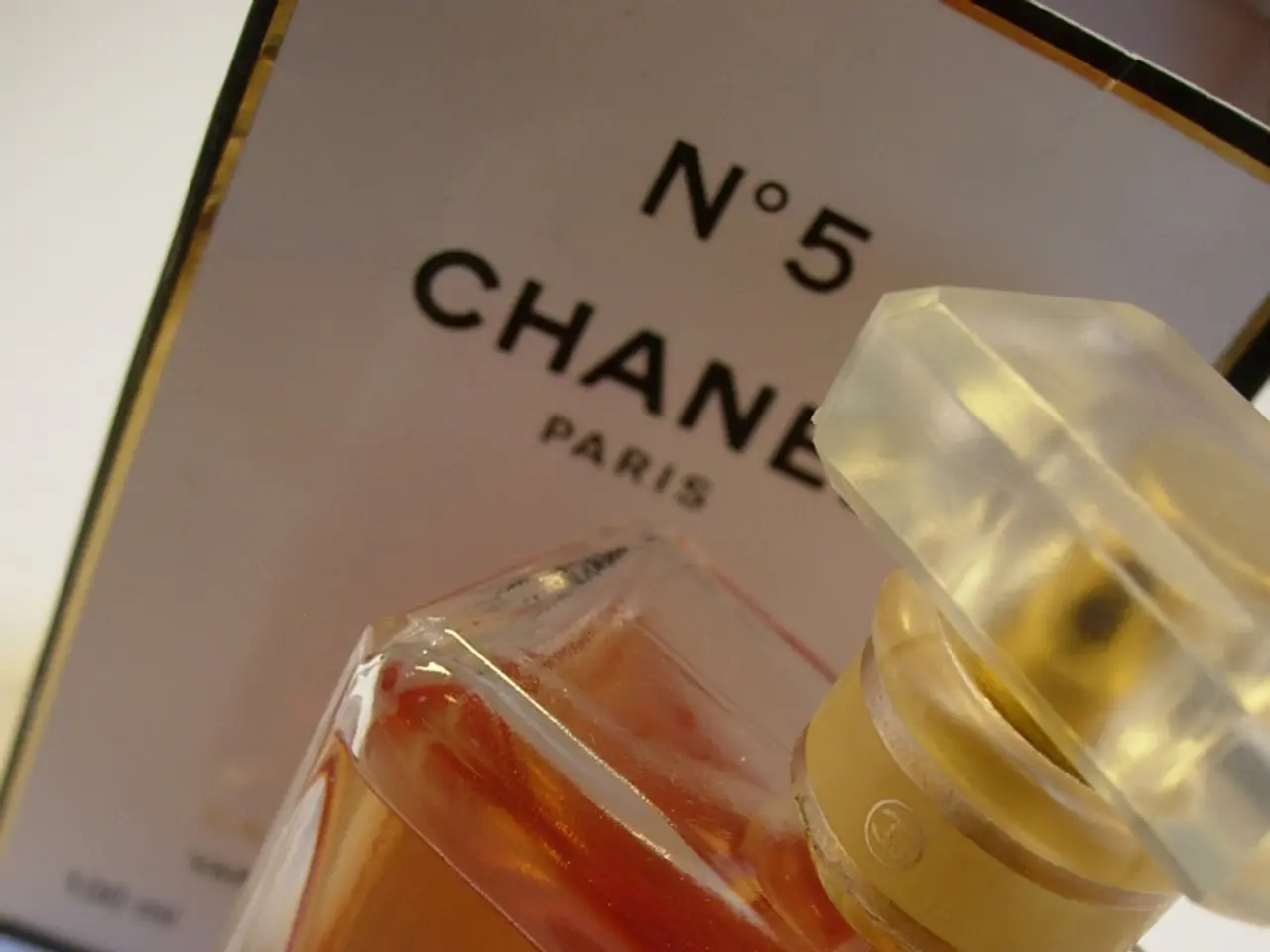Earn Income through the Sale of Custom-made Fragrances
Making and Selling Homemade Perfume: A Comprehensive Guide
Homemade perfume making is a creative and rewarding hobby that can also be a lucrative venture. Here are some key points to consider when embarking on this exciting journey.
Cost-Effective Production
Keeping overheads low is essential when making and selling homemade perfume. Cheap but effective bottles and containers can be used for packaging, and glass containers are preferable for preparing and storing perfumes, rather than plastic.
Technical Resources
For those with a background in chemistry, the book "The Chemistry of Fragrances" by D. H. Pybus and C. S. Sell serves as a useful sourcebook. This technical book provides valuable insights into the world of fragrances.
Creativity and Presentation
Presentation is crucial when selling homemade perfume. Creativity is encouraged, and the image of the fragrance should work in tandem with the scent to attract potential buyers.
Fragrance Composition
Perfumes contain 15-30% essential oils diluted in a base of alcohol, with a small percentage of distilled water. Fixatives, such as sandalwood, benzoin, myrrh, vanilla, and balsam of Peru, are ingredients added to lend their overall rate of evaporation, prolonging the fragrance. Less potent waters may contain 5-10% essential oils, while colognes and body splashes may have 1-2%.
Marketing Considerations
Before selecting a fragrance for homemade perfume, it's important to consider the marketing concept. A modest range of products should be started when selling, and advertising, travel, and marketing costs should be factored into the cost of selling.
Selling Venues
Homemade perfume can be sold through various methods, including gift shops, independent chemist's shops, and online marketplaces like eBay. Craft fairs, local markets, and gift fairs like Top Drawer can also be venues for selling. Setting up a website to sell directly to the public is also a good idea.
Success Stories
The success of social media brands like Ffern and The Saltworks Company demonstrates the popularity of boutique perfumes. It's important to note that you can start selling homemade perfume without being on the front of OK! Magazine or a huge company.
Experimentation and Learning
American Sherill Pociecha suggests starting with equal amounts of essential oils when experimenting with new combinations. To learn how to make a viable homemade perfume, consider attending a perfume making workshop, such as those offered by Wowcher.
Record Keeping and Aging
It's important to record, date, and name each blend and allow your perfume to age in a cool, dry, dark area to smooth out and mellow the raw-ingredient smell. Tincture of benzoin, grape seed oil, castor oil, and liquid from vitamin E gel capsules are other fixatives useful for oil and bath blends, creams, and lotions.
Fixatives for Oil and Bath Blends
Tincture of benzoin, grape seed oil, castor oil, and liquid from vitamin E gel capsules are other fixatives useful for oil and bath blends, creams, and lotions.
Recipe Acquisition
Regarding the cost to obtain the recipe for homemade perfume, there is no clear information available from the provided search results. However, the joy and satisfaction of creating your own unique fragrances make the journey worthwhile.
Read also:
- Peptide YY (PYY): Exploring its Role in Appetite Suppression, Intestinal Health, and Cognitive Links
- Toddler Health: Rotavirus Signs, Origins, and Potential Complications
- Digestive issues and heart discomfort: Root causes and associated health conditions
- House Infernos: Deadly Hazards Surpassing the Flames








